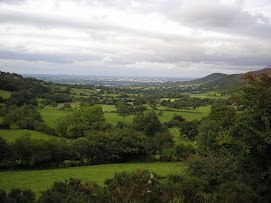The one thing that struck me in this chapter was verse 19:
Bring the best of the first fruits of your soil to the house of the Lord your God. Do not cook a young goat in its mother's milk.
This is firstly about giving our best to God, not the leftovers, or what we can do without, but the very best. It all goes back to the age old argument about whether we should tithe and if so, is it out of our net or gross income. I don't intend to get into an argument about that, as I know some people hold very strong views saying we should, others hold equally strong views that we shouldn't. But what I do think is that we should give our very best to God, whether that be in the form of tithes, money in the offering plate, giving to charity, helping the poor, giving our time, our effort, our skills. God deserves the best we have, not the scraps, the leftovers, the time we have left when we have wined and dined, been out on the town, enjoyed ourselves and spent up. He deserves the first fruits, the best of the harvest.
But then you read on in this chapter and it talks about not cooking a young goat in its mothers milk. At first glance, this seems completely out of context, a random comment thrown in just to confuse. But in actual fact, according to what I have read on the internet ( a great source of information!), the Lord is warning the people here against the practices of the Canaanites, who would, apparently, sacrifice young goats in the milk of their mother to appease their goddess of fertility. However, it has led to the tradition of keeping meat and milk separate that strict Jews adhere to even today, with separate fridges, cooking dishes, etc for meat and milk dishes ( a very simplistic view, I know and there is lot more behind this).
In everything God commands, He is looking out for the people, trying to warn us about things to come, to educate us, to teach us His rules. God is so just, so pure, so holy, that He would never ask someone to do something that was wrong. Here, the whole thing about the young goat is that if the Israelites were in the habit of never doing this, if it became second nature, then when they saw the Canaanites and others performing this type of sacrifice, they would never even consider doing it themselves. But God knew back in the wilderness what the people would face when they reached Canaan, so He was forearming them against this.
It is all part and parcel of being taught right from wrong. If you are taught from an early age what you can and cannot do, then this principles become part of you, they become second nature. Whereas if you are not taught that it is wrong to steal, wrong to murder, to lie, to cheat and so on, then they too become ingrained. It is hard to break the habits of a lifetime either way, which is why it is so sad to see the way things are today, with children not being taught right from wrong.
Thursday, 27 November 2008
Subscribe to:
Post Comments (Atom)






No comments:
Post a Comment